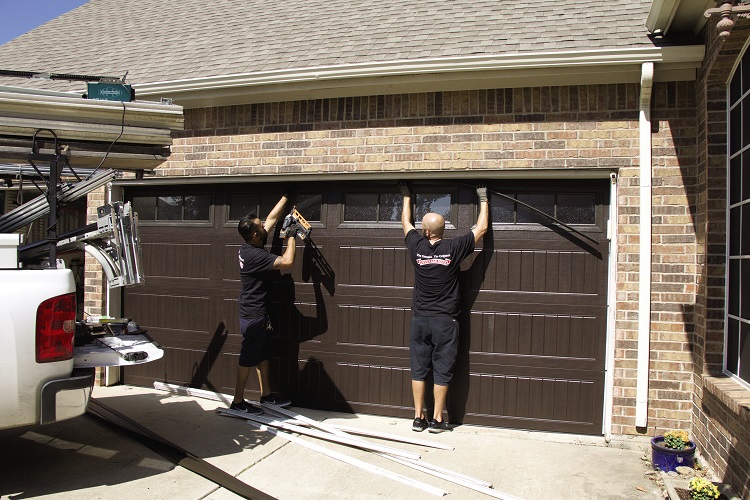Preventative Measures for Garage Door Problems
Your garage door is a vital component of your home, providing security, convenience, and protection for your vehicles and belongings. To ensure it functions properly and avoid unexpected problems, it’s crucial to implement preventative measures. Here are some key steps to prevent garage door problems and maintain its longevity.
Regular Inspection: Conduct routine inspections of your garage door. Look for signs of wear and tear, such as frayed cables, loose bolts, or damaged rollers. Inspect the springs, tracks, and hinges for any issues. Address these problems promptly to prevent further damage.
Lubrication: Proper lubrication of moving parts is essential to prevent friction and extend the life of your garage door. Use a high-quality, silicone-based lubricant to grease the tracks, rollers, hinges, and springs. Regular lubrication reduces wear and ensures smooth operation.

Check the balance of your door by disconnecting the opener and manually lifting the door halfway. If it doesn’t stay in place, the springs may need adjustment.
Weatherstripping: Invest in weatherstripping for the bottom of your garage door. This simple addition helps keep out drafts, dust, and pests. It also helps maintain a consistent temperature inside the garage, which can reduce the strain on your garage door opener.
Regular Cleaning: Clean the tracks and rollers to remove dirt and debris that can hinder smooth operation. A vacuum or a stiff brush can help clear out any obstructions. Be sure to keep the area around the garage door clear to prevent debris from accumulating.
Safety Sensors: Most modern garage doors are equipped with safety sensors that prevent accidents and injuries. Ensure these sensors are clean, aligned, and functioning correctly. Regularly test the sensors by placing an object in their path to ensure the door stops and reverses when necessary.
Tighten Hardware: Over time, the hardware on your garage door can become loose due to vibrations and normal use. Regularly inspect and tighten all the bolts, nuts, and screws on the door and the opener. Loose hardware can lead to misalignment and operational issues.
Professional Maintenance: Consider scheduling professional maintenance for your garage door at least once a year. A trained technician can perform a thorough inspection, make necessary adjustments, and identify potential issues before they become major problems.
Replace Worn Parts: When components of your garage door, such as springs, cables, or rollers, show signs of wear or damage, replace them promptly. Avoid DIY repairs for critical parts like springs, as they are under extreme tension and can be dangerous to work on without proper training.
Control Remote Access: Regularly update the security codes for your garage door opener remote controls. This prevents unauthorized access to your garage. If you have a smart garage door opener, read more here ensure it has a strong, unique password to protect against hacking attempts.
Extreme Weather Precautions: In regions with extreme weather conditions, take extra precautions. For instance, reinforce your garage door to withstand high winds, and insulate it to prevent temperature fluctuations.